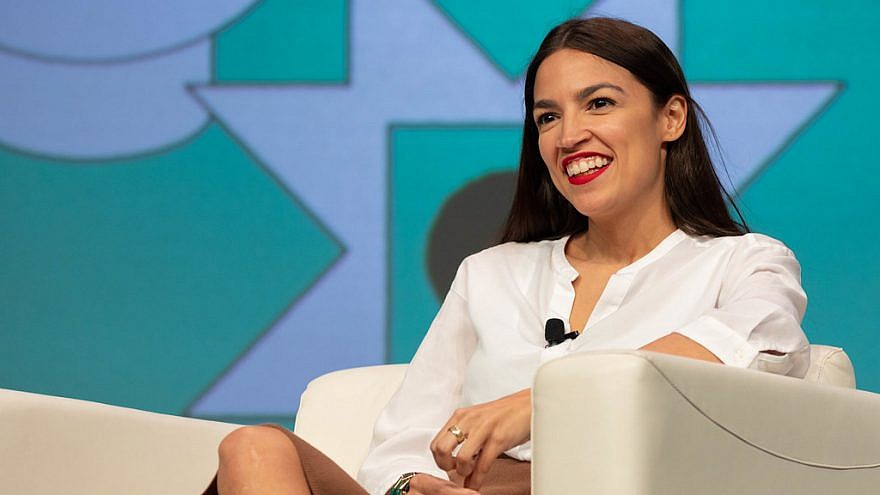U.S. Rep Alexandria Ocasio-Cortez (D-N.Y.) has signed onto Rep. Ilhan Omar’s (D-Minn.) resolution that supports the anti-Israel BDS movement.
Although the pro-boycott resolution introduced by Omar does not explicitly mention Israel, she told Al-Monitor shortly before filing it, “We are introducing a resolution … to really speak about the American values that support and believe in our ability to exercise our First Amendment rights in regard to boycotting. And it is an opportunity for us to explain why it is we support a nonviolent movement, which is the BDS movement.”
Ocasio-Cortez’s congressional office did not immediately respond to a request for comment.
The resolution also compares BDS to boycotts of Nazi Germany and the Soviet Union.
It states, “Whereas Americans of conscience have a proud history of participating in boycotts to advocate for human rights abroad, including … boycotting Nazi Germany from March 1933 to October 1941 in response to the dehumanization of the Jewish people in the lead-up to the Holocaust … the United States Olympic Committee boycotting the 1980 summer Olympics in Moscow in protest of the Soviet invasion of Afghanistan in the preceding year; and “leading the campaign in the 1980s to boycott South African goods in opposition to apartheid in that country.”
Other co-sponsors include Reps. Rashida Tlaib (D-Mich.), John Lewis (D-Ga.), Bonnie Watson Coleman (D-N.J.), Donald Payne (D-N.J.), Bobby Rush (D-Ill.), Danny Davis (D-Ill.), Ayanna Pressley (D-Mass.), James McGovern (D-Mass.), Earl Blumenauer (D-Ore.), Peter DeFazio (D-Ore.), Andre Carson (D-Ind.), Mark DeSaulnier (D-Calif.) and Joaquin Castro (D-Texas), whose brother, former U.S. Housing and Urban Development Secretary Julian Castro, is running for the 2020 Democratic presidential nomination.
Ocasio-Cortez was one of 17 members to vote against last week’s House resolution condemning BDS.
Ocasio-Cortez told BuzzFeed News on Tuesday that BDS is “a tough issue, especially for constituencies back home … ultimately, it comes down to protecting free speech. And my concern with being overly punitive on nonviolent forms of protest is that it forces people into other channels and I would hate to be a part of, you know, paving that kind of path.”


























